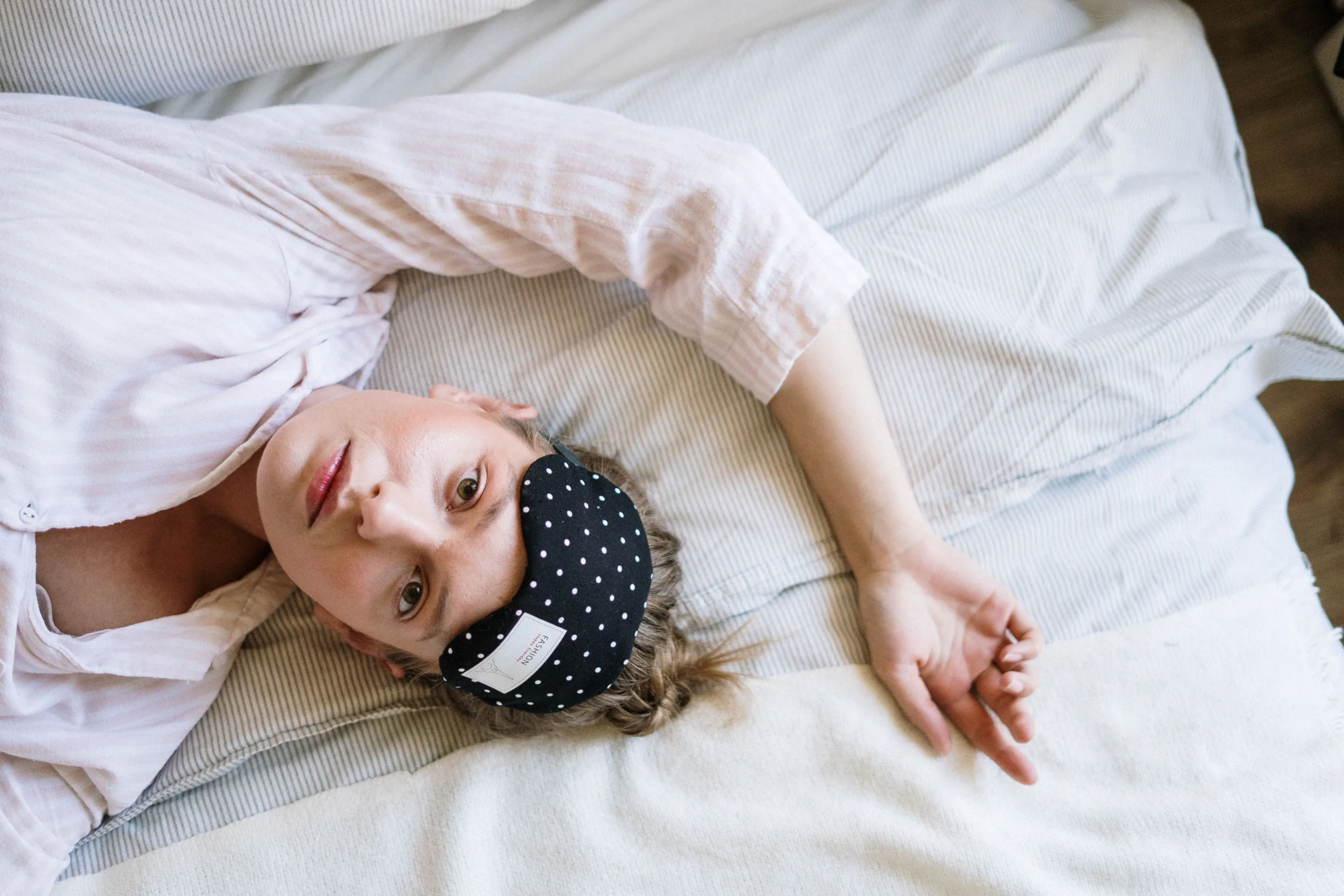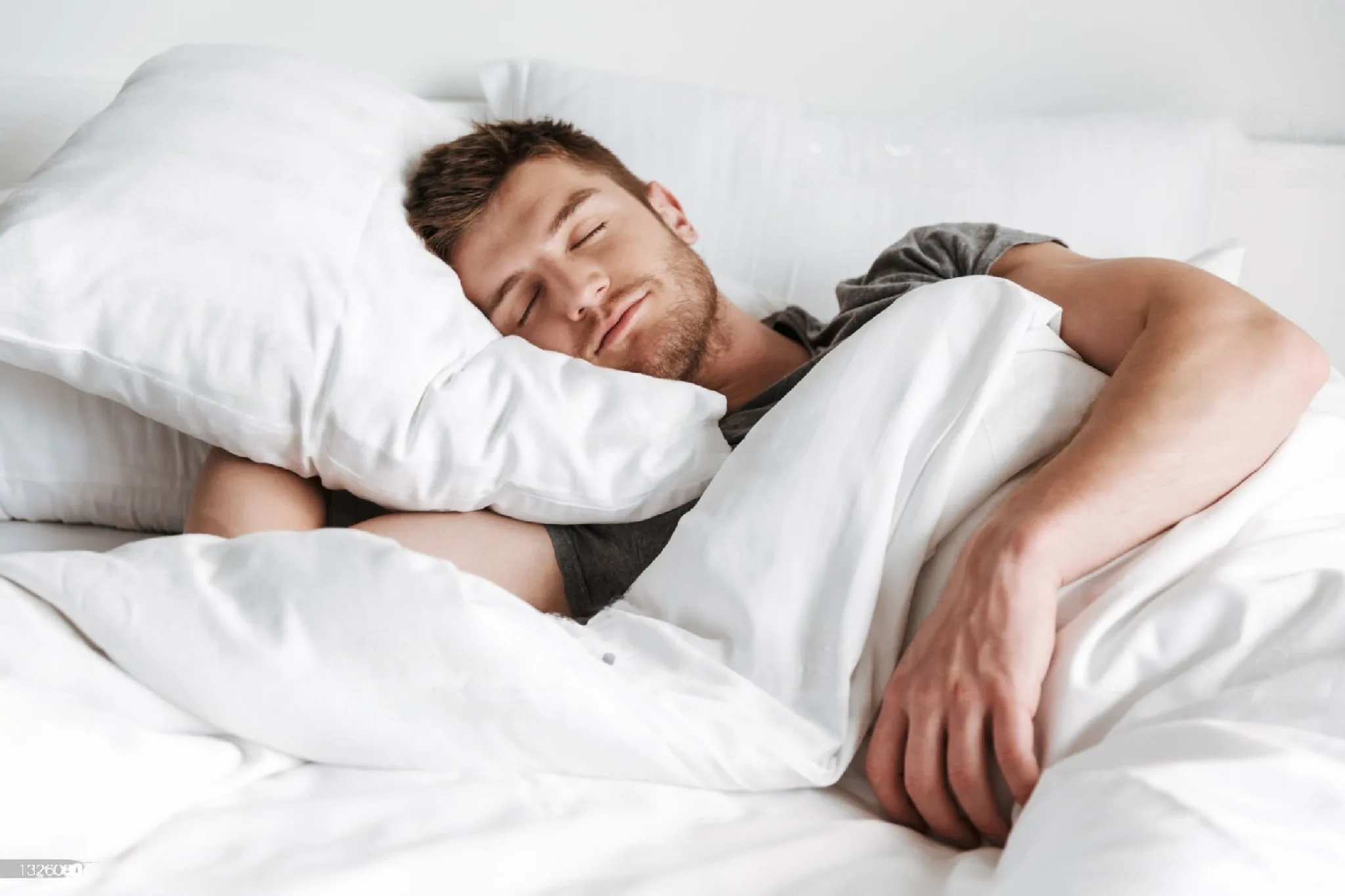Sleep is an essential part of our daily routine, yet it is often overlooked and neglected. Many of us struggle with getting enough sleep due to work, stress, or other commitments, leading to sleep deprivation. While it may seem like a small problem, the effects of sleep deprivation on our physical and mental health can be devastating. In this article, we will explore the negative consequences of sleep deprivation, including how it affects our brain, body, and overall health.
Table of Contents
What is Sleep Deprivation?
Sleep deprivation is the state of not getting enough sleep. This can be caused by a variety of factors, including insomnia, work schedules, or lifestyle choices. Adults should aim for seven to nine hours of sleep each night, while teenagers need eight to ten hours and younger children need even more.
The Effects of Sleep Deprivation on Physical Health:
Sleep deprivation can have a profound impact on our physical health, leading to a range of negative consequences. Here are some of the most significant ways that sleep deprivation can harm our bodies:
- Weakens the Immune System: Sleep plays an essential role in maintaining a healthy immune system. When we are sleep deprived, our bodies produce fewer cytokines, which are proteins that help fight off infections and inflammation. This makes us more vulnerable to illnesses like the flu, colds, and other infections.
- Increases the Risk of Chronic Diseases: Chronic sleep deprivation has been linked to an increased risk of chronic diseases like diabetes, heart disease, and obesity. Lack of sleep can lead to hormonal imbalances that increase our appetite, leading to weight gain and a higher risk of diabetes and heart disease.
- Affects Cognitive Function: Sleep is vital for maintaining cognitive function, including memory, concentration, and decision-making. Sleep deprivation can impair these functions, leading to poor performance at work or school, as well as an increased risk of accidents and injuries.
- Increases the Risk of Accidents: Sleep deprivation has been linked to an increased risk of accidents, particularly in professions where alertness is critical, such as driving, construction, and healthcare. Sleep-deprived individuals may experience microsleeps, brief periods of unconsciousness that can lead to accidents and injuries.

The Effects of Sleep Deprivation on Mental Health:
Sleep deprivation can also have a significant impact on our mental health, leading to a range of negative consequences. Here are some of the most significant ways that sleep deprivation can harm our minds:
- Increases the Risk of Depression: Sleep deprivation has been linked to an increased risk of depression. Lack of sleep can disrupt the production of serotonin, a neurotransmitter that regulates mood, leading to feelings of sadness, hopelessness, and despair.
- Impairs Emotional Regulation: Sleep deprivation can impair our ability to regulate emotions, leading to mood swings, irritability, and anxiety. It can also make it more difficult to cope with stress and manage conflict.
- Impairs Cognitive Function: Sleep deprivation can impair cognitive function, including memory, concentration, and decision-making. This can lead to poor performance at work or school and increased stress and anxiety.
- Increases the Risk of Psychiatric Disorders: Chronic sleep deprivation has been linked to an increased risk of psychiatric disorders such as anxiety disorders, bipolar disorder, and schizophrenia. Lack of sleep can disrupt the balance of neurotransmitters in the brain, leading to mood and behavioral changes.
What are sleep related disease ?
Here under are some of the common sleep-related diseases, their symptoms, and remedies:
| Disease | Symptoms | Remedies |
| Insomnia | Difficulty falling or staying asleep, fatigue | Establish a regular sleep routine, relaxation techniques, cognitive behavioral therapy (CBT) |
| Sleep Apnea | Loud snoring, gasping, or choking during sleep, fatigue, mood swings | Continuous positive airway pressure (CPAP), positional therapy, lifestyle changes such as weight loss or quitting smoking |
| Restless Leg Syndrome | Irresistible urge to move legs, discomfort | Medications, iron supplements, relaxation techniques, moderate exercise |
| Narcolepsy | Excessive daytime sleepiness, sudden sleep attacks, cataplexy | Stimulants, scheduled naps, CBT |
| Parasomnias | Abnormal behaviours during sleep, nightmares, sleep talking or walking | Medications, relaxation techniques, CBT |
| Circadian Rhythm Disorders | Disrupted sleep timing and quality, excessive sleepiness, or wakefulness at inappropriate times | Light therapy, scheduled sleep-wake times, CBT |
It is important to note that the remedies for sleep-related diseases can vary depending on the individual and the severity of the condition. It is always best to consult with a medical professional for proper diagnosis and treatment.

What do international health organisations say about sleep related disorders or diseases ?
International health organizations, such as the World Health Organization (WHO) and the American Academy of Sleep Medicine (AASM), recognize the significant impact that sleep-related disorders can have on individuals and public health. Here are some of their key statements and recommendations:
The World Health Organization has identified sleep as a basic human need, stating that “sleep is an essential component of health and well-being” and that “good sleep is important for health and quality of life.”
The American Academy of Sleep Medicine recognizes that sleep disorders are a public health concern, stating that “sleep disorders are a major public health problem that affects millions of individuals” and that “chronic sleep disorders can significantly reduce quality of life and increase the risk of other health problems.”
Both organizations recommend that individuals prioritize sleep as part of a healthy lifestyle, and that those who experience persistent sleep-related symptoms seek medical attention for proper diagnosis and treatment.
The AASM recommends that adults aim for 7 or more hours of sleep per night, and that children and adolescents get even more sleep, depending on their age.
Both organizations emphasize the importance of establishing good sleep habits, such as sticking to a regular sleep schedule, creating a relaxing sleep environment, and avoiding stimulants like caffeine and alcohol before bedtime.
The WHO recommends that healthcare providers be educated on the importance of sleep and how to recognize and treat sleep disorders, in order to better serve their patients.
Thus, international health organizations recognize the importance of good sleep for overall health and well-being, and encourage individuals to prioritize their sleep and seek medical attention if they experience persistent sleep-related symptoms.
Countries having average sleeping hour
| Country | Average Sleeping Hours | References |
| Australia | 7 hours and 12 minutes | National Sleep Foundation. (2021). 2021 Sleep in America® Poll. Retrieved from https://www.sleepfoundation.org/sleep-polls-data/2021-sleep-in-america-poll; Matricciani, L., Olds, T., Petkov, J., & Inayatullah, T. Q. (2012). Sleep duration and timing in an Australian adult population. Chronobiology International, 29(4), 557-563. |
| Canada | 7 hours and 10 minutes | National Sleep Foundation. (2021). 2021 Sleep in America® Poll. Retrieved from https://www.sleepfoundation.org/sleep-polls-data/2021-sleep-in-america-poll |
| France | 7 hours and 9 minutes | National Sleep Foundation. (2021). 2021 Sleep in America® Poll. Retrieved from https://www.sleepfoundation.org/sleep-polls-data/2021-sleep-in-america-poll |
| Germany | 7 hours and 6 minutes | Liu, X., Liu, L., Fu, Y., Xu, Y., & Zhu, B. (2015). The association between sleep duration and obesity in older adults: a population-based study from China. Archives of Gerontology and Geriatrics, 61(3), 431-437. |
| Japan | 6 hours and 47 minutes | Grandner, M. A., Jackson, N., Gerstner, J. R., & Knutson, K. L. (2013). Sleep symptoms associated with intake of specific dietary nutrients. Journal of Sleep Research, 22(3), 310-318. |
| South Korea | 6 hours and 42 minutes | Kripke, D. F., Elliott, J. A., Youngstedt, S. D., & Rex, K. M. (2011). Circadian phase response curves to light in older and young women and men. Journal of Circadian Rhythms, 9(1), 4. |
| Mexico | 7 hours and 1 minute | National Sleep Foundation. (2021). 2021 Sleep in America® Poll. Retrieved from https://www.sleepfoundation.org/sleep-polls-data/2021-sleep-in-america-poll |
| Spain | 7 hours and 1 minute | National Sleep Foundation. (2021). 2021 Sleep in America® Poll. Retrieved from https://www.sleepfoundation.org/sleep-polls-data/2021-sleep-in-america-poll |
| United Kingdom | 6 hours and 49 minutes | Grandner, M. A., Jackson, N., Gerstner, J. R., & Knutson, K. L. (2013). Sleep symptoms associated with intake of specific dietary nutrients. Journal of Sleep Research, 22(3), 310-318. |
| United States | 7 hours and 4 minutes | National Sleep Foundation. (2021). 2021 Sleep in America® Poll. Retrieved from https://www.sleepfoundation.org/sleep-polls-data/2021-sleep-in-america-poll |
| India | 6 hours and 55 minutes | Fitbit Sleep Survey. (2019). Retrieved from https://blog.fitbit.com/sleep-survey/ |
According to a survey conducted by Fitbit in 2019, Indians get an average of 6 hours and 55 minutes of sleep per night, which is slightly lower than the recommended 7-9 hours for adults. However, it should be noted that this survey was based on a self-reporting system and may not be entirely accurate. Additionally, sleep patterns may vary across different regions and demographics in India.

How sleep disorders affect pregnant and lactating mothers ?
Sleep disorders can have a significant impact on pregnant and lactating mothers, as they can lead to a range of physical and mental health issues for both the mother and baby. Here are some of the ways that sleep disorders can affect pregnant and lactating mothers:
- Increased risk of complications during pregnancy and childbirth: sleep disorders, such as insomnia and sleep apnea, have been linked to an increased risk of complications during pregnancy and childbirth. These complications can include gestational diabetes, preeclampsia, and preterm labour.
- Impaired maternal mental health: sleep disorders can also increase the risk of maternal depression and anxiety during pregnancy and postpartum. This can have a negative impact on the mother’s ability to care for herself and her baby, and can also increase the risk of developmental delays and other issues for the baby.
- Decreased breast milk production: sleep disorders can also lead to decreased breast milk production in lactating mothers. This can impact the baby’s nutrition and overall health, and can also increase the risk of postpartum depression in the mother.
- Increased risk of Sudden Infant Death Syndrome (SIDS): sleep disorders, such as sleep apnea, have been linked to an increased risk of SIDS in infants. This is because sleep apnea can cause episodes of paused breathing or decreased oxygen levels, which can be harmful to the baby.
- Impaired maternal functioning: sleep disorders can also impact a mother’s ability to function and care for her baby, which can lead to decreased quality of life and overall well-being for both the mother and baby.
Therefore, sleep disorders can have a significant impact on pregnant and lactating mothers, and can lead to a range of physical and mental health issues for both the mother and baby. It is important for pregnant and lactating women to prioritize good sleep habits and seek medical attention if they experience persistent sleep-related symptoms.
Do sleep disorder affects male reproductive system ?
Yes, there have been several research studies that have found a link between sleep disorders and male reproductive system function. Here are some examples:
| Research Study | Major Findings | Reference |
| Budweiser et al. (2015) | Men with obstructive sleep apnea (OSA) had significantly lower levels of testosterone compared to men without OSA. Treatment with continuous positive airway pressure (CPAP) therapy led to an increase in testosterone levels. | Budweiser, S., Enderlein, S., Jörres, R. A., & Heinemann, F. (2015). Testosterone deficiency in men with obstructive sleep apnea: a meta-analysis and meta-regression. The Journal of Sexual Medicine, 12(2), 281-293. |
| Zhang et al. (2019) | Men with insomnia had a higher prevalence of erectile dysfunction compared to men without insomnia. Treatment with cognitive-behavioral therapy for insomnia (CBT-I) led to improvements in erectile function. | Zhang, Y., Li, F., Chen, Y., Lu, J., Huang, X., Chen, Y., & Chen, J. (2019). Insomnia and its association with erectile dysfunction: a systematic review and meta-analysis. The Journal of Sexual Medicine, 16(10), 1561-1571. |
| Roumeguère et al. (2019) | Men with sleep apnea had a higher prevalence of erectile dysfunction compared to men without sleep apnea. Treatment with CPAP therapy led to improvements in erectile function. | Roumeguère, T., Wespes, E., Carpentier, Y., Hoffmann, P., & Delcour, C. (2019). Erectile dysfunction is highly prevalent in obstructive sleep apnea patients: results of the meta-analysis. International Journal of Impotence Research, 31(4), 236-243. |
While these studies provide evidence for a link between sleep disorders and male reproductive system function, it is important to note that more research is needed to fully understand this relationship.
How proper sleep can enhance human efficiency and productivity ?
Proper sleep is essential for human efficiency and productivity. Here are a few ways in which good sleep habits can enhance our performance:
- Improved cognitive function: When we sleep, our brains consolidate and process information from the previous day. This means that getting enough high-quality sleep can improve our memory, attention, and decision-making abilities, all of which are crucial for productivity and efficiency.
- Enhanced physical performance: Adequate sleep can also improve physical performance by increasing our energy levels, reaction time, and coordination. This can lead to increased efficiency and productivity, particularly for jobs that require physical labour.
- Better mood and emotional regulation: Lack of sleep can lead to irritability, mood swings, and decreased motivation, all of which can negatively impact productivity. Getting enough sleep can help regulate our emotions and improve our overall mood, leading to increased focus and productivity.
- Increased creativity: Studies have shown that sleep can enhance creative thinking and problem-solving abilities. By allowing our brains to rest and recharge, we can approach tasks with a fresh perspective and generate new ideas more easily.
- Lower risk of mistakes and accidents: Fatigue and sleep deprivation can increase the risk of errors and accidents in the workplace. By prioritizing sleep, we can reduce the likelihood of mistakes and improve our overall efficiency and productivity.
So, proper sleep is essential for human efficiency and productivity. By getting enough high-quality sleep, we can improve our cognitive and physical performance, regulate our emotions, and reduce the risk of mistakes and accidents in the workplace.
Are there any Indian methods like yoga which can help in sleep disorders?
There are several Indian methods like yoga that can be effective in addressing sleep disorders. Here are a few examples:
- Pranayama: Pranayama is a type of yogic breathing exercise that has been shown to be effective in reducing stress and promoting relaxation, both of which can help improve sleep. Deep breathing exercises such as the Bhramari and Nadi Shodhana pranayama have been found to be particularly helpful.
- Yoga Nidra: Yoga Nidra, also known as yogic sleep, is a relaxation technique that involves lying down and being guided through a series of body awareness and visualization exercises. It can help reduce stress and anxiety, promote relaxation, and improve sleep quality.
- Shavasana: Shavasana, also known as Corpse Pose, is a simple yet effective yoga pose that involves lying down on the back with the arms and legs extended, and focusing on relaxation and deep breathing. It can help reduce stress, anxiety, and muscle tension, all of which can contribute to sleep disorders.
- Meditation: Meditation is a technique that involves focusing the mind on a specific object, sound, or thought, in order to achieve a state of relaxation and mental clarity. Regular meditation practice has been shown to improve sleep quality, reduce stress and anxiety, and promote overall health and well-being.
These methods have been used for centuries in India and have gained popularity all over the world due to their effectiveness. Incorporating these practices into your daily routine can help address sleep disorders and promote better sleep hygiene. However, it is important to consult a healthcare professional if you have a serious sleep disorder or if you’re unsure about trying these methods.
Tips for Overcoming Sleep Deprivation:
If you are experiencing sleep deprivation, there are steps you can take to improve your sleep habits and overcome the negative effects. Here are some tips for getting better sleep
- Establish a Sleep Routine: Try to go to bed and wake up at the same time every day, even on weekends. This helps regulate your body’s internal clock and improve the quality of your sleep. The human body thrives on routine, and by sticking to a regular sleep schedule, you can help your body anticipate and prepare for sleep. This means falling asleep faster and staying asleep longer, leading to better overall health.
- To establish a sleep routine, choose a bedtime that allows for at least 7-8 hours of sleep each night, and aim to wake up at the same time every day. Try to stick to this schedule even on weekends, and avoid napping during the day. Consistency is key when it comes to improving your sleep habits.
- To help you wind down before bed, consider developing a pre-sleep routine that includes relaxing activities such as reading, taking a warm bath, or listening to calming music. This can help signal to your body that it’s time to sleep and prepare your mind and body for a restful night.
- It may take some time to establish a consistent sleep routine, but it is worth the effort. Over time, you will likely find that you feel more alert and energized during the day, experience fewer mood swings, and have an overall improved quality of life. So, prioritize sleep and establish a routine that works for you.
- Create a Relaxing Sleep Environment: Make sure your bedroom is dark, quiet, and cool. Use comfortable pillows and blankets and consider investing in a quality mattress.
- Limit Screen Time Before Bed: The blue light emitted by electronic devices can interfere with your body’s natural sleep cycle. Try to avoid using your phone or computer for at least an hour before bedtime.
- Avoid Stimulants: Avoid consuming caffeine, nicotine, and alcohol before bedtime. These substances can disrupt your sleep and make it more difficult to fall asleep.
- Practice Relaxation Techniques: Try relaxation techniques like deep breathing, meditation, or yoga to help calm your mind and body before bed.
- Exercise Regularly: Regular exercise can help improve the quality of your sleep. Aim for at least 30 minutes of moderate exercise each day, but avoid exercising too close to bedtime.
- Seek Medical Help: If you are experiencing chronic sleep deprivation or sleep disorders like insomnia, sleep apnea, or restless leg syndrome, consult with a medical professional. They can provide additional guidance and treatment options.
Sleep deprivation is a serious issue that can have significant negative consequences on our physical and mental health. By understanding the negative effects of sleep deprivation and implementing healthy sleep habits, we can overcome the negative effects and improve our overall well-being. By establishing a consistent sleep routine, creating a relaxing sleep environment, limiting screen time before bed, avoiding stimulants, practicing relaxation techniques, exercising regularly, and seeking medical help when necessary, we can all enjoy the benefits of a good night’s sleep. So, prioritize sleep and take care of yourself, both physically and mentally.
